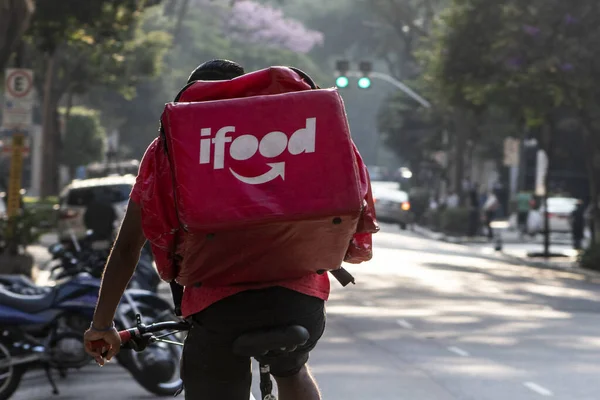Contributing editor, Peter Backman is a long-term foodservice sector guru and founder of theDelivery.World, a platform that connects the delivery sector and makes sense of the myriad changes and challenges that affect the sector across the globe.
Global food delivery platforms face the challenge of adapting to local customer expectations and operational nuances when expanding into new regions. Beyond food offerings, companies must tailor their services, technology, and the role of gig workers to fit the local context. Let’s explore how major platforms have responded to unique market demands, focusing on customer expectations and delivery riders’ roles in various countries.
South Korea’s tech-savvy, fast-paced consumers expect delivery platforms to offer ultra-quick service with real-time order tracking. Delivery Hero, through its Woowa Brothers subsidiary, has focused on these expectations, providing cutting-edge app functionality and lightning-fast deliveries to satisfy consumers’ need for convenience.
In this market, gig riders, known for their speed in congested urban areas, are central to the operation. However, the risks associated with fast deliveries have led to rising concerns over rider safety. To address these challenges, Delivery Hero has implemented safety measures and technologies to protect riders, balancing speed with safety in a country where both are highly valued.
In the UK, Just Eat Takeaway has adapted to a market where customers value reliability and expect a seamless delivery experience, often mirroring their favourite pub or takeaway meal. To meet these expectations, the company partners with a range of local restaurants to deliver familiar dishes with high-quality service.
The UK’s stricter labour laws have influenced Just Eat’s decision to offer employment contracts to some delivery workers, diverging from the pure gig model. This shift addresses local concerns around worker rights, helping the platform position itself as a socially responsible company. British customers, sensitive to these issues, often expect companies to treat workers fairly.

In Brazil, iFood has tailored its platform to meet local consumers’ demand for affordability.
In Brazil, iFood has tailored its platform to meet local consumers’ demand for affordability. Alongside offering budget-friendly meals, the company has embraced the role of delivery riders as trusted, community-based figures. Many riders are familiar faces within neighbourhoods, and their relationships with customers help build a sense of trust.
However, Brazil’s challenging economic conditions mean gig workers often face long hours with minimal protections. iFood has introduced limited initiatives, like insurance and support programmes, to address these issues, although the flexible gig model remains dominant due to cost pressures.
Rappi in Colombia has extended beyond food delivery, offering a wide range of services, from grocery and pharmacy deliveries to cash withdrawals. This reflects Colombian consumers’ expectations for platforms that provide multi-service convenience in their daily lives.
Rappi’s delivery workers, or ‘Rappitenderos’ take on diverse tasks beyond food deliveries, navigating complex and often unsafe urban environments. While the platform has introduced some support for its riders, it continues to face criticism for not providing stronger protections, reflecting the broader challenges of gig work in the region.
The success of global food delivery platforms relies on their ability to meet local customer expectations for service quality, speed, and convenience, as well as how they manage the role of delivery riders. Companies like Just Eat Takeaway, Delivery Hero, iFood, and Rappi have shown that understanding and adapting to local demands is critical to thriving in new markets. By addressing not just the food being delivered but also how it is delivered, these platforms maintain their relevance and competitiveness globally.


